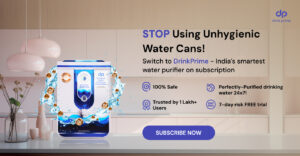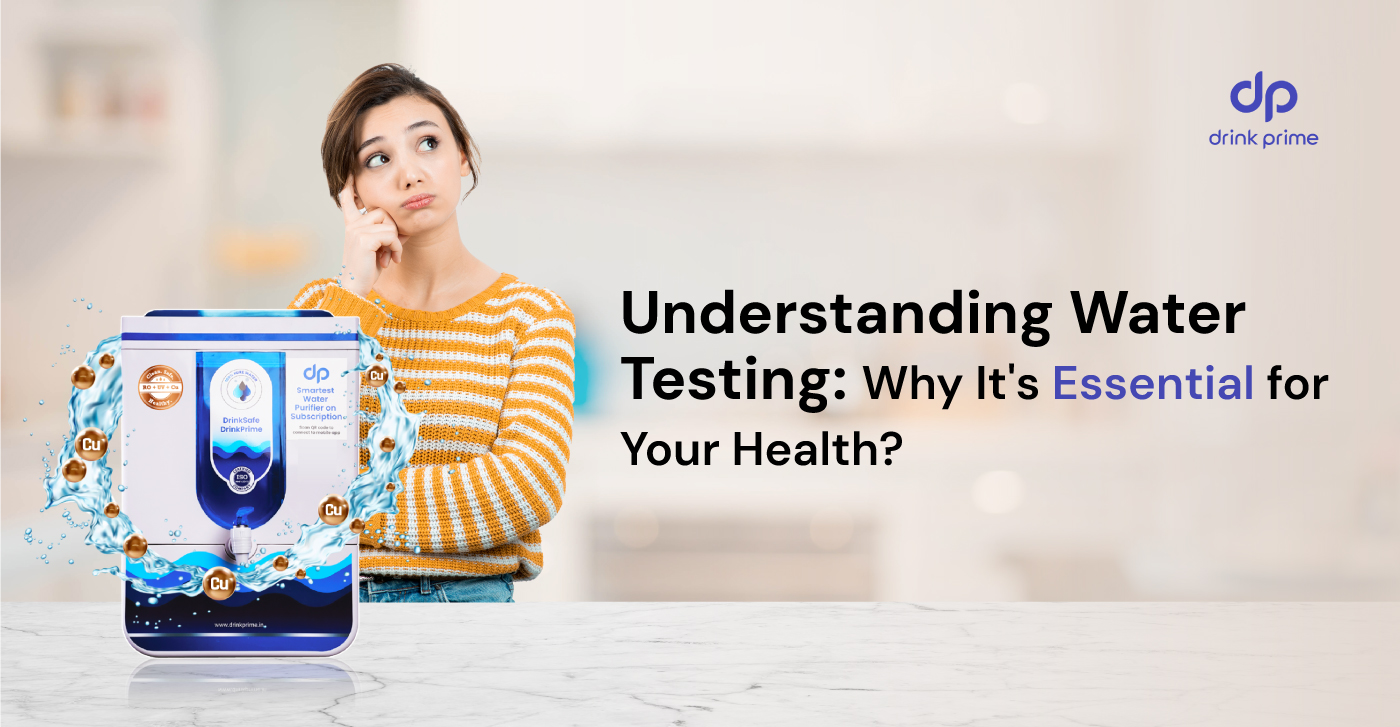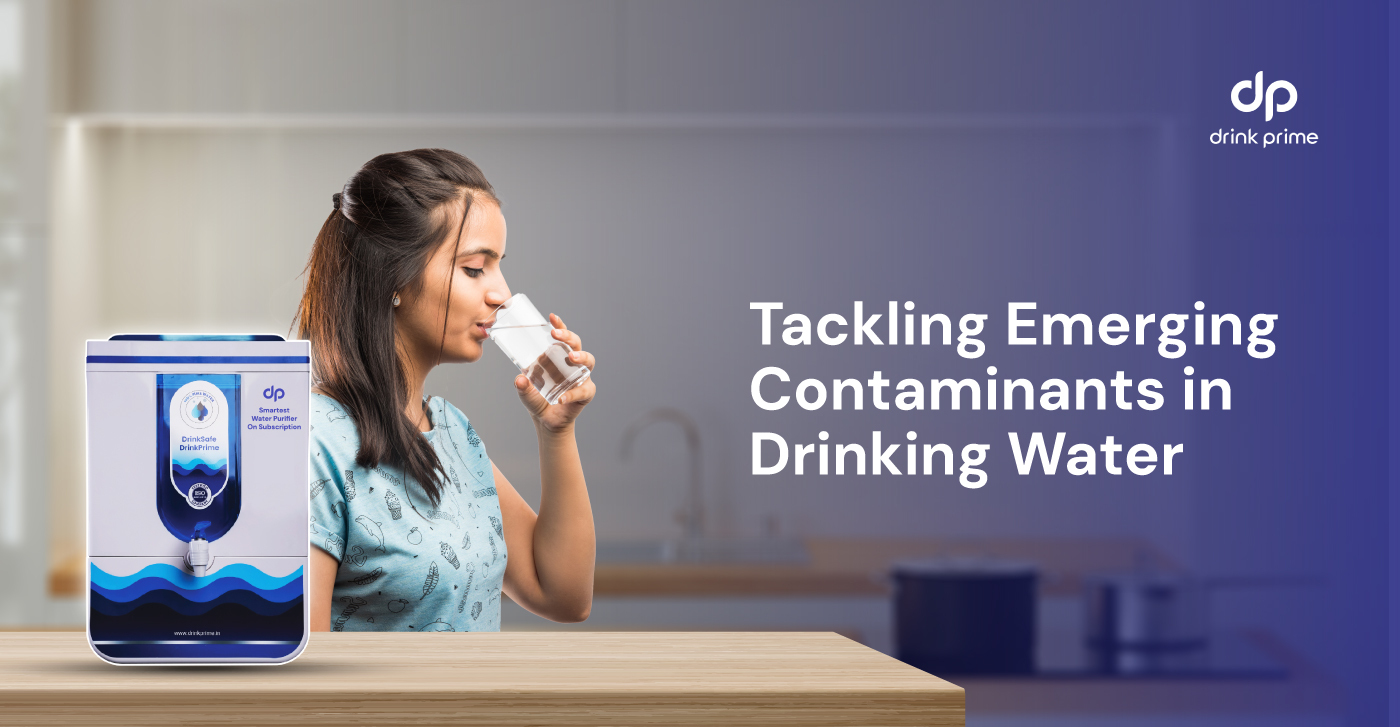Water is one of our most precious resources. It is crucial for our physical as well as mental well-being. But one of the parameters that is as important, and one we often tend to overlook, is the quality of the water. Due to widespread pollution and industrialization, our water bodies are severely strained and polluted. This makes it imperative for us to test the quality of our source water before we consume it. Drinking contaminated water can lead to a host of waterborne infections, which can often be fatal. This is where water testing becomes important. It tells you the levels of contaminants present in your water so that you can take steps to correct it. In this article, we delve into factors like when you should be checking the water quality, why it’s important, and ways in which you can check the quality of your source water and fix it.
Why should you test your water?
- A water test is like a health checkup for your source water. It helps identify contaminants and toxins and keeps your water safe for consumption. It is crucial for your well-being and the health of the ecosystem.
- Your water may have a variety of contaminants dissolved in it. Physical contaminants like sediments, chemical contaminants like nitrates, pesticides, etc., pathogens like viruses and bacteria, and even radiological contaminants like uranium can contaminate water. You must identify the type of contaminants you are dealing with by doing proper water quality testing and taking corrective steps to ensure the purity of your water.
- Even factors like weather changes, too much heat, or rain can affect the quality of your water. Regular water quality analysis will help you stay abreast of changes and always ensure water purity.
- Consistent water analysis helps you spot quality changes in water early on. With this information, you can zero in on a treatment that is ideal for dealing with the unique challenges of your source water.
- Testing for parameters like the hardness of water and mineral load helps you protect your expensive appliances like washing machines, purifiers, heaters, etc., making them function optimally and last longer.
- Regular water tests help keep water bodies free of pollutants, which in turn protects the plants and animals that come in contact with them, thus creating a sustainable environment.
When should you test your water?
- There is no right time to test your water, as it should be an ongoing process that should be done regularly. This is important because the quality of water does not remain the same. It is affected by a host of factors like weather, chemical usage, pollutant levels, etc. So, it becomes crucial that you do regular testing to ensure the availability of quality water at all times.
- Water analysis is non-negotiable when you are moving into a new rental home or even buying a new house or apartment. Along with checking for amenities, good localities, and finance options, you must identify the location of your source water, which can either be supplied by civic authorities or through groundwater like borewells. In either case, though the basic treatments may be in place, it is prudent that you check the quality of water, as there may be a variety of contaminants invisible to the naked eye.
How can you test the quality of water?
- Each country has defined standards and regulations for safe drinking water. In India, it is defined by the Bureau of Indian Standards, BIS, and the Ministry of Water Resources. These standards list out the desired limits of acceptable elements in the water. You must check the permissible limits before you test the quality of the source water.
- The Department of Drinking Water and Sanitation, under the Jal Shakti Ministry, has made a one-stop portal known as the Water Quality Management Information System, where you can register and get your source water tested, get information about the government laboratory nearest to you using the ‘water quality testing near me’ option and book slots. You can take or send the sample water to the lab and get test results from the comfort of your home. You can also contact concerned authorities for remedial measures if needed.
- Water testing kits are another way to get a real estimate of the contaminants in your source water. There are many types of water testing kits available in the market currently. A bacteria test kit or a dip slide method can help you check for the presence of pathogens like bacteria in your water easily. A corrosion monitoring kit can help check factors like calcium hardness, alkalinity, temperature, dissolved solids, etc. Comparison kits, pH meters, pocket TDs meters, etc., can help check if your source water meets the desired specifications. While most of these kits give a pretty accurate result, it is always recommended to get your water tested at a reputed lab at least once a year to correctly assess the water quality which is subject to a lot of changes through the year.
What should you do after testing the water?
- After you test the source water and discover the contamination levels, it is time to zero in on a purification system that is equipped to handle the toxins in your water. Depending on the severity of contaminants, you can choose from among the plethora of purifiers available in the market,
- UV purifiers are best suited to municipal water supplies with TDS below 500 mg/lt., while RO purifiers are ideal for hard water and work best if your TDS levels are greater than 500 mg/lt. RO technology is more powerful in eliminating a variety of contaminants, including heavy metals and dissolved salts.
Get 7 Days Risk Free Trial
Conclusion
Water pollution and toxins are major concerns that can directly affect your health and well-being.
If you’re concerned about ensuring safe drinking water at home, a reliable option would be to invest in an RO+UV water purifier. With DrinkPrime’s RO+UV water purifier, you can effectively eliminate a wide range of contaminants and impurities, ensuring access to clean drinking water around the clock.
You can choose from a range of subscription plans that suit your family’s drinking water needs!
FAQs
The World Health Organization outlines four key criteria for drinking water quality: These criteria ensure water is safe and pleasant to consume. The five key parameters for assessing water quality, as outlined by the United Nations Environment Programme (UNEP), are: These parameters help determine the suitability of water for consumption and ecological health.
What are the 4 criteria for drinking water quality?
What are the 5 parameters of water quality?




